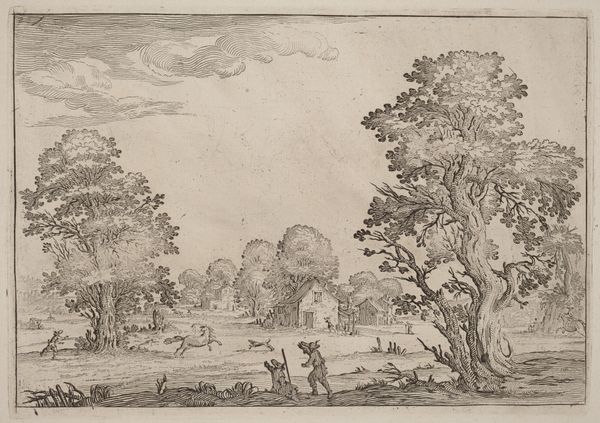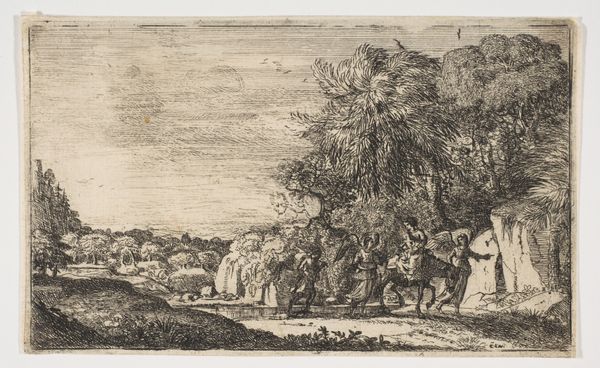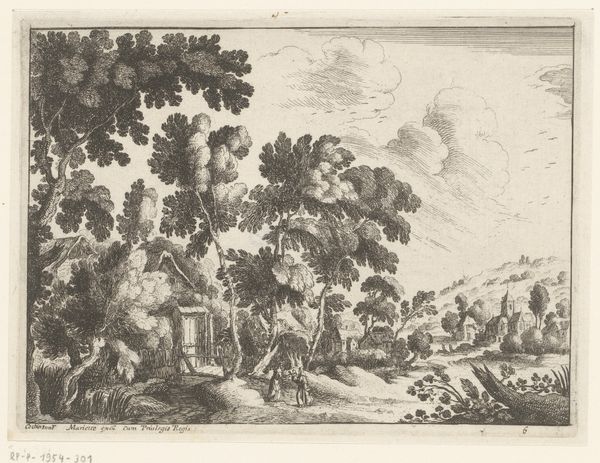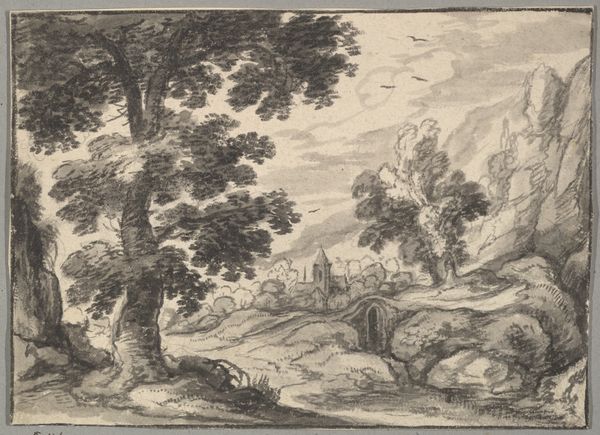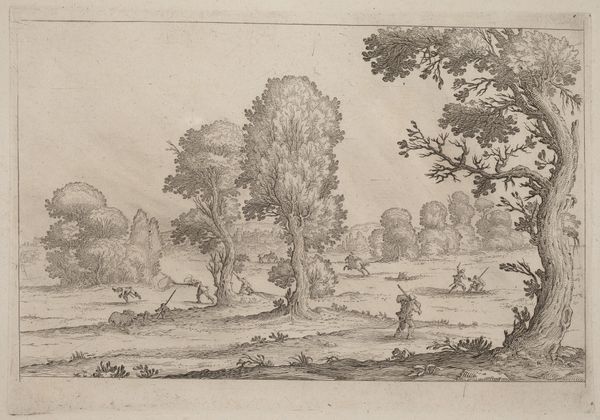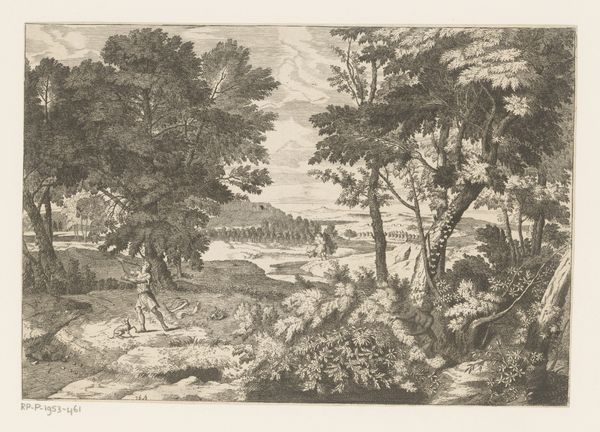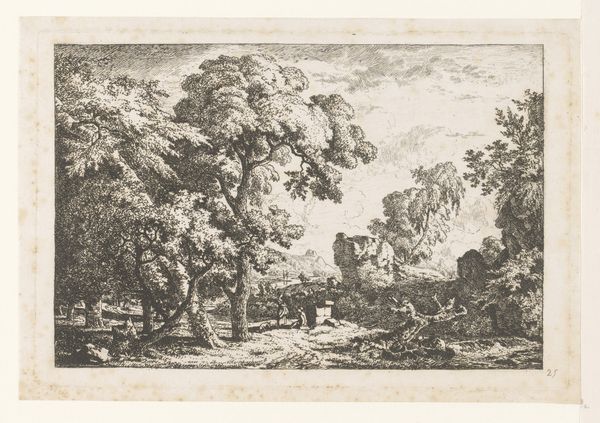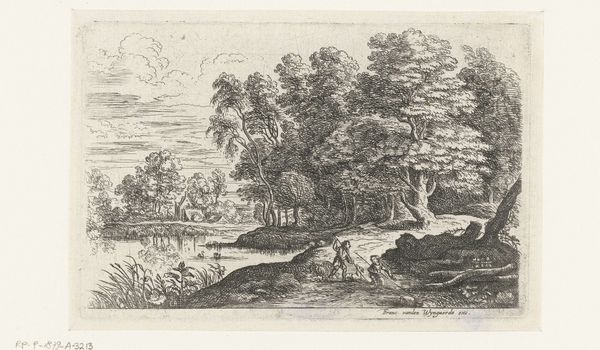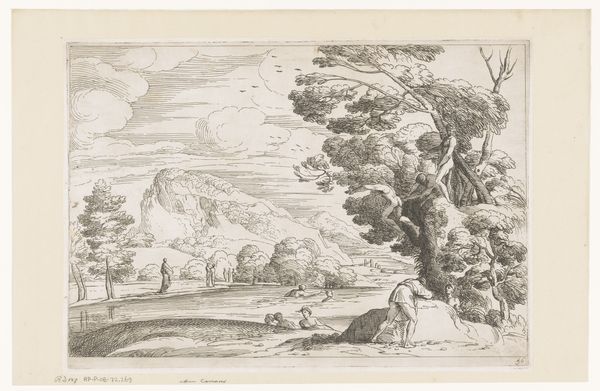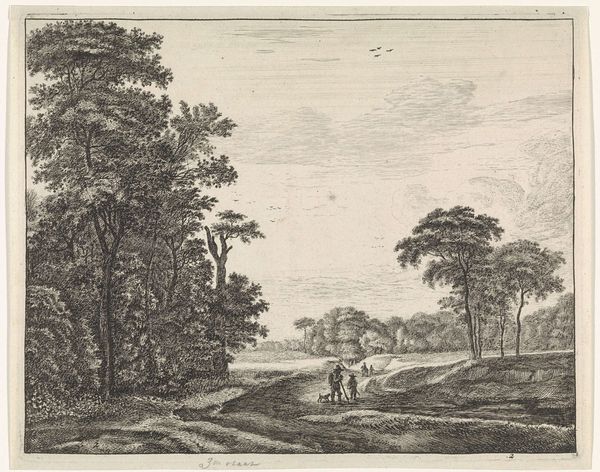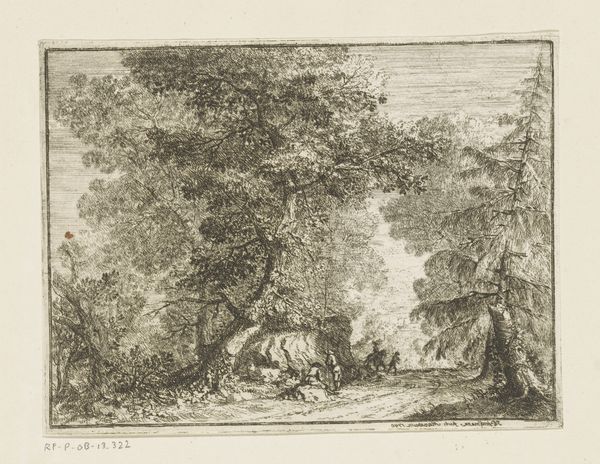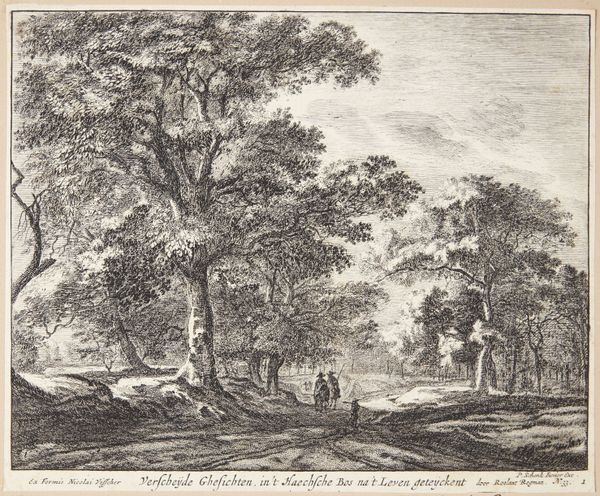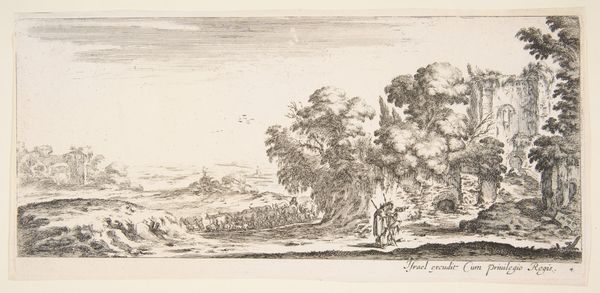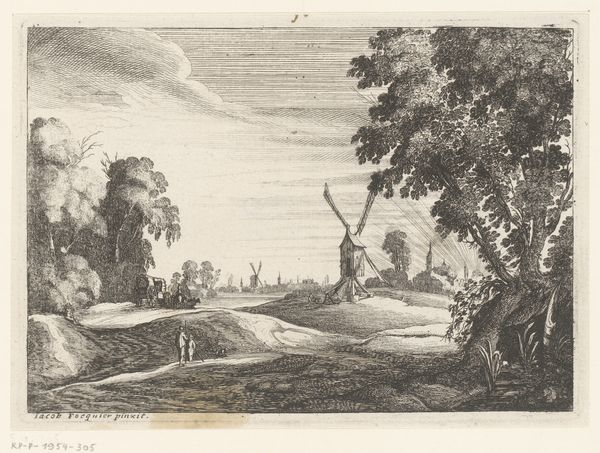
The Temple of the Sibyl at Tivoli (from Landscapes and Ruins) 1610 - 1620
0:00
0:00
drawing, print, etching
#
drawing
#
baroque
# print
#
etching
#
landscape
#
italian-renaissance
Dimensions: plate: 4 5/8 x 12 1/4 in. (11.7 x 31.1 cm) sheet: 8 5/16 x 12 3/8 in. (21.1 x 31.5 cm)
Copyright: Public Domain
Jan van de Velde II created "The Temple of the Sibyl at Tivoli" using etching techniques. The linear precision captures a panoramic landscape, dominated by classical ruins on the left and a soft transition into nature on the right. Van de Velde's approach to composition is intriguing: the temple, a symbol of classical order, stands in stark contrast to the organic forms of the trees and sky. This juxtaposition destabilizes our understanding of space and time. He uses the ruin not just as a picturesque motif but as a signifier of history's decay and the inevitable triumph of nature. The semiotic interplay between architecture and nature creates a dialogue about impermanence and the cyclical nature of civilization. Notice the horizontality of the artwork. The temple is balanced by the broad expanse of the sky and landscape, suggesting a continuous, unbounded space. This compositional choice invites contemplation on the relationship between human constructions and the natural world. The artwork challenges fixed meanings of landscape, inviting us to see it as a dynamic interplay of cultural and natural forces.
Comments
No comments
Be the first to comment and join the conversation on the ultimate creative platform.
